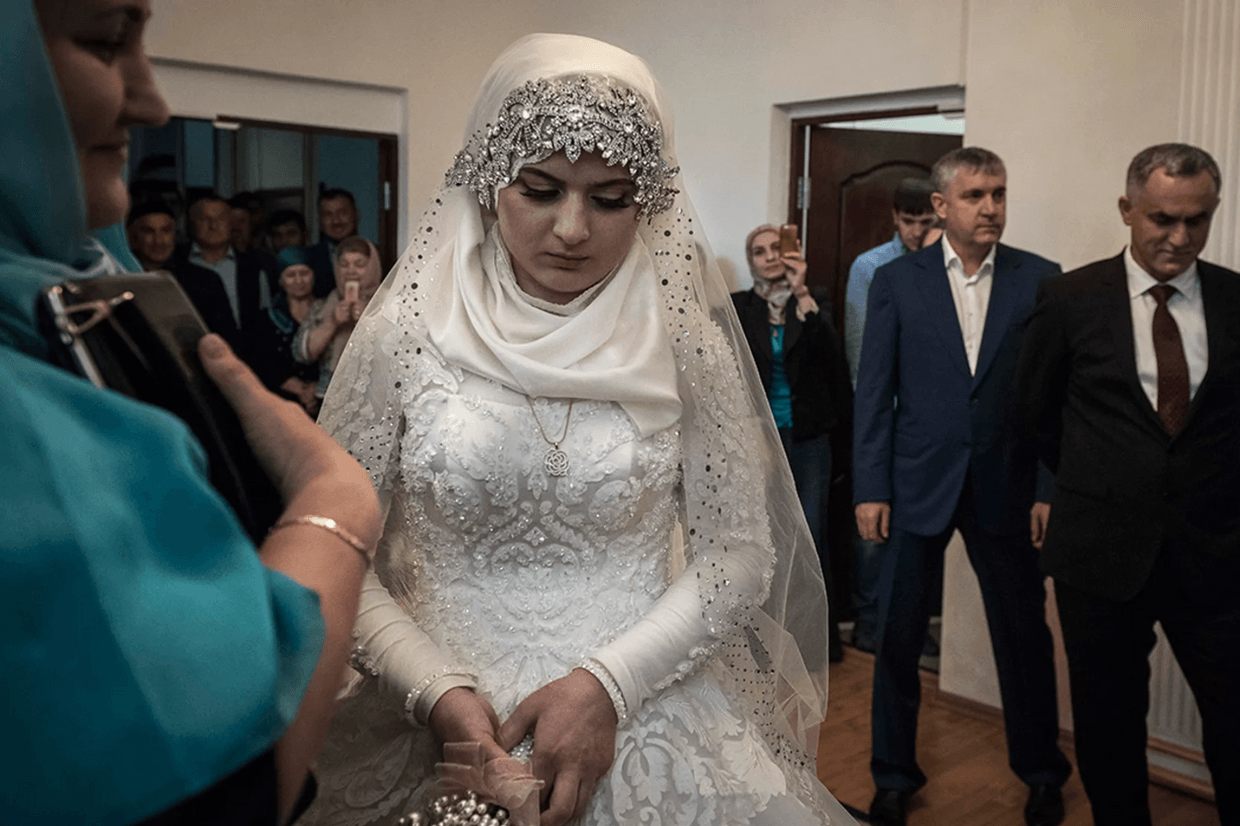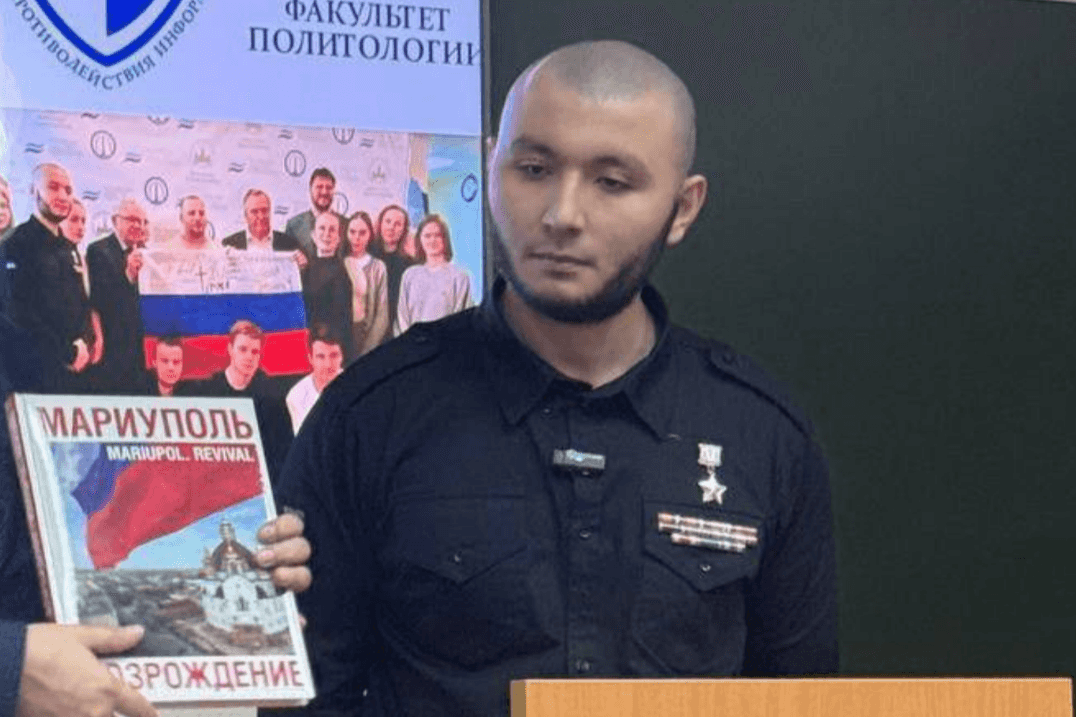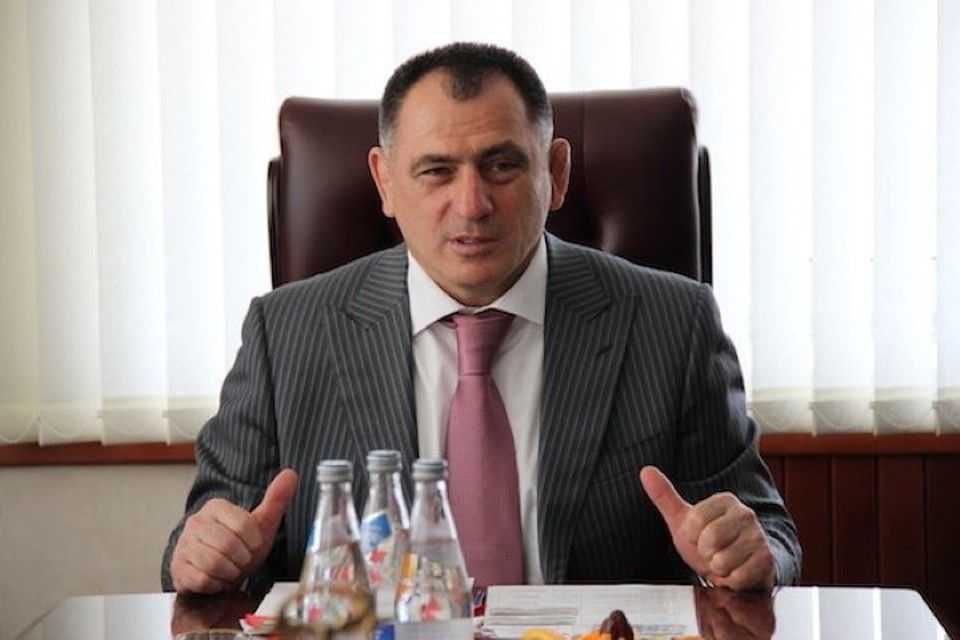A ‘peculiar PR stunt’: how a fatwa on polygamy caused controversy and confusion in Russia
Multiple marriages have existed in the North Caucasus for centuries, raising the question, why was a fatwa needed in the first place?

On 18 December, the Council of Islamic Clerics of Russia’s Spiritual Administration of Muslims (DUM) issued a fatwa allowing Islamic men to enter into up to four religious marriages. The document was approved by the Ulema Council, an advisory body established to resolve scientific and theological issues, on the eve of Russian President Vladimir Putin’s live annual broadcast — during which he called on Russians to increase the population — and was announced immediately following his speech.
‘Not only theologians but also jurists took part in the development of this fatwa. The theological opinion will include recommendations for the imam, newlyweds, as well as the form of a marriage contract,’ read a press release published on the DUM’s website.
On 21 December, the chair of the Moscow DUM, Mufti Ildar Alyautdinov, told Russian state news agency RIA Novosti that such a marriage was allowed if a wife could not or did not want to bear a child, as well as in the case of the ‘sexual incompatibility’ of the spouses.
He noted that the fatwa clarifies the rights and obligations of spouses in a religious marriage, and does not replace Russian family law, which recognises only one marriage concluded in state registry offices with the issuance of a marriage certificate. However, since polygamous families in a religious marriage exist, he said the rights of women in them must be stipulated.
‘The rights of a woman who is only in a religious marriage are not legally secured. Our theological opinion will help her take the necessary steps to preserve her rights’, Alyautdinov said.
That day, Moscow-based Mufti Sheikh Ravil Gainutdin reportedly said the fatwa protected widows and orphans of those killed in Ukraine and did not violate the law.
Two days later, however, Russia’s Prosecutor General’s Office sent a notice to the DUM stating that the fatwa violated the Russian Constitution, the Family Code, and the federal law ‘On Freedom of Conscience and Religious Associations’.
Following this, the DUM recalled the fatwa, with Alyautdinov reportedly stating that this was due to the reaction of both the authorities and the public.
‘This is God's will, and the Ulema Council of the DUM sees no point in engaging in polemics,’ he wrote on Telegram.
A centuries-long history in the North Caucasus
According to Akhmet Yarlykapov, an Islamic scholar and leading researcher at the Moscow State Institute of International Relations, polygamy has existed in the North Caucasus for many centuries, and does not contradict Sharia nor the traditional system of customary laws in the region known as adat.
‘Polygamy did not cease in the North Caucasus even in Soviet times. All the more so before the revolution, because the empire allowed local governments to operate with their own laws. And, in fact, it was recognised by the state in the sense that one could take a second, third, or fourth wife’, Yarlykapov tells OC Media.
However, he adds that in actuality, the empire only recognised the first wife.
‘The others did not receive the benefits they were entitled to,’ Yarlykapov says.
According to Yarlykapov, when Soviet laws came into force in the Caucasus, people simply stopped flaunting polygamy. The practice continued underground, and communities were aware of who had second or third wives.
Yarlykapov believes the fatwa in December was a ‘kind of peculiar PR stunt’ on the part of the DUM.
‘They caught the mood of the state, which is taking measures to increase the birth rate, and decided to come out with an initiative in support of this, and at the official level. They expected the state to pat them on the head. Unfortunately, or fortunately, it didn’t,’ Yarlykapov says.
He says that the fatwa was anyway unnecessary, because the Quran unambiguously permits polygamy, while fatwas are meant to be adopted only in controversial cases.
‘If a Muslim wants to take a second wife, he has no obstacles [religiously], except for one thing stated in the Quran — both wives must be equally maintained, the husband cannot somehow deprive one wife at the expense of the other. Therefore, the appearance of this fatwa was quite strange,’ Yarlykapov says.
Despite its permissibility, however, most Muslims are not polygamists, Yarlykapov says, though many have the financial means to support several families.
According to a 2019 survey conducted by the Heinrich Böll Foundation, a German political foundation, Daghestan has the highest number of polygamous marriages in the North Caucasus — 15% of the total marriages registered. Chechnya followed with 11%, then Kabarda-Balkaria at 10%, and Ingushetia at 6%.
The men surveyed named a variety of motives for taking a second wife. One of the reasons accepted as legitimate by many participants was simply the opportunity itself, which is provided for by the Quran. This was especially so for Chechen and Ingush men (62% and 47% respectively).
The next significant reason for men to take a second wife was the impossibility to have children in their first marriage. The absence of children was especially important for men from Chechnya (39%) and Ingushetia (44%), although respondents from Kabarda-Balkaria were also concerned about producing heirs (27%).
An attempt at legalisation
Indeed, this is not the first time polygamy has been promoted at a more official level in Russia and the North Caucasus.
In 1999, Ingush President Ruslan Aushev issued a decree that authorised polygamy in the republic. In part, it was adopted to combat the demographic challenges which arose following the 1992 Ossetian-Ingush conflict which caused male mortality rates in the region to sharply increase.
Aushev’s decree provided for the possibility of registering second, third, and fourth marriages through the civil registry office, removing criminal prosecution for polygamy. The document stipulated a strict condition, however: a man was obliged to provide for all wives financially and give them equal attention.
The decree was soon suspended by then-Russian President Boris Yeltsin, before being abolished in July 2000. While permissible, 15 polygamous marriages were registered in the republic.
Chechen Head Ramzan Kadyrov has also often spoken in favour of polygamy, noting that he would marry a second time, but that he would not find anyone better than his first wife, Medni. At the same time, it is commonly known that Kadyrov has had at least two other wives who have borne him children, whom Medni is raising as her own.
‘I thought you knew!’
Today, if a Muslim man in the North Caucasus wishes to marry for a second, third, or fourth time, he needs only come to a mosque with his bride — the consent of any previous wives is not required. Such previous wives do not even need to be informed of their husband’s intention to remarry as long as the marriage has been concluded in accordance with all Sharia laws.
Daghestani resident Aisha, whose name has been changed to protect her privacy, tells OC Media that she only learned of her husband’s second family after almost ten years of marriage.
‘By then we already had three children. I couldn’t even imagine that he could marry someone else. We had such love, we knew each other almost from childhood,’ Aisha recalls.
According to her, every time her husband was not at home, she made excuses for him, saying he was visiting his parents, was at work, or was with friends.
‘Then he blurted it out himself and also made this surprised face: “I thought you knew!” ’ Aisha says.
After finding out about her husband’s second marriage, Aisha asked to meet the other wife.
‘I thought maybe we would become friends, live together; it would be easier to manage the household and bring up the children’, Aisha says.
Though, according to her, they managed to find ‘a common language’, she ended up initiating a divorce a year later. Because she had only had a religious marriage with her husband, which was never registered with the state in order so that she could receive allowance as a single mother, the divorce was similarly enacted from a religious perspective.
‘He was always abrupt, rude, and lately he became completely unbearable. He raised his hand against me, against the children, he was always unhappy. I asked my brother for help, he understood me and helped me and the children to leave. Of course, he [her brother] tried to talk me out of it, but I am sure it would have been worse. I’m still afraid he’ll find me, I haven’t told anyone where I’ve gone’, Aisha says.
However, she emphasises that the second wife was not the reason for the divorce.
‘With her, it was possible to talk’, Aisha says.
Zelimkhan, a Chechen living in Europe who also requested that his name be changed, has a wife and five children, but says he would not mind marrying again.
‘There are a lot of people today who have some kind of connections on the side, mistresses. I personally know several people of another religion, Orthodox [Christianity], who have second wives. They never say “my mistress”. A very good friend of mine is Orthodox. He always says “this is my older family”, “this is my younger family” ’, Zelimkhan tells OC Media.
He believes that in today’s world, it is very easy to have affairs, especially given the number of dating sites, but that ‘it is better to get officially married so that everyone knows that this is your official family and does not say something behind your back. And this woman will be calm, and you will be calmer’.
Zelimkhan also believes that polygamy in no way infringes on women’s rights, because ‘nobody does it by force’.
‘The reasons can be very different. Either a woman cannot have children, or she has children, but, for example, only girls, and she wants an heir. Or a man has material wealth and can support one family, two, or three. There are ordinary male needs, that you want a lot and more, but you don’t want to be untrue [to your wife],’ Zelimkhan says.
However, he notes that one mistake that should not be made is to bring all the women into one house, which is expressly forbidden by Sharia law.
‘Not everyone can afford that financially. You are obliged, even if one of the wives doesn’t want to, to buy her the same thing as the other wife. You bought one a phone — then you have to buy the other one a phone. You buy one wife a dress, you have to buy the other one a dress. At the same time, I have a friend who married four wealthy women and goes from house to house,’ Zelimkhan says.
Though he believes polygamy can be a good thing, he does not understand why a fatwa was needed, when such marriages already take place.
He says that in Europe, polygamy is slightly less common among Muslims because women, ‘amid jealousy, can deprive their husbands of something, like taking away their children.’
‘This is all because here, all the laws are in favour of women. That’s why many people in Europe get married, for example, in Turkey. There are many widows there whose husbands died in the war in Syria. But I don’t know how they find loopholes, because according to the Quran, if you spend one day with one wife, you also spend one day with another. I don’t know how they combine it [having one wife in Europe and one in Turkey],’ Zelimkhan says.
A slippery slope to Sharia law?
The issuance of the fatwa drew sharp criticism from officials, social activists, and the Russian Orthodox Church, with many claiming it could lead to further imposition of Islamic laws in Russia.
The chair of the Russian parliamentary committee on Family Protection, Fatherhood, Motherhood, and Childhood, MP Nina Ostanina, told Gazeta.Ru on 19 December that Russia was a secular country and that people must abide by secular laws.
Kirill Kabanov, a member of the Presidential Council for Human Rights, wrote a similar critique on Telegram, noting that Islamic banking already operated in Russia, and that the legalisation of polygamy could be followed by Muslims refusing to comply with other Russian laws and the introduction of Sharia courts.
Likewise, Oleh Tsarov, a former pro-Russian Ukrainian politician who now lives in Russia, suggested that the legalisation of religious polygamy could be followed by the adoption of the practice at the legislative level.
‘We are taught to think that polygamy is possible. But then sooner or later the question will arise that in such polygamous religious families it is necessary to somehow protect the rights of children, […] husbands, and […] wives during divorce, during inheritance,’ Tsarov speculated on Telegram, adding that the state needed to determine how it treats polygamy, with it better to decide now rather than push the issue into the future.
However, he also emphasised that the definition of marriage was already spelled out in the Russian Constitution as the union of one man with one woman.
MP Mikhail Matveev, in turn, suggested that polygamy would be followed by other practices seen in some Muslim countries — such as the stoning of women.
‘The Middle Ages are more relevant than ever, and the “norms” about niqabs, polygamy, and tomorrow, perhaps, stoning, no longer seem like the distant past’, Matveev wrote on Telegram.
The fatwa was also criticised by the Russian Orthodox Church, which officially opposes polygamy.
On 20 December, Vakhtang Kipshidze, a senior Church official, claimed the issue of polygamy had ‘become a dubious slogan, which some are trying to consider as a way to solve the demographic problem’.
‘I will remind you that in the Russian Empire before 1917, the Orthodox population grew at a tremendous rate, despite the fact that there was no polygamy. Therefore, the problem of the lack of population growth is not in polygamy, but in the destruction of the institution of the traditional family’, Kipshidze told NEWS.ru.
Svetlana Anokhina, a human rights activist from Daghestan, told OC Media that the fatwa was an ‘absolutely absurd thing, not needed by anyone’.
‘They [the DUM] explain it by saying that they want to protect the rights of second wives. Yet, we do not protect the rights of first wives, official wives’, Anokhina tells OC Media.‘I understand that this is a very ridiculous initiative, directly related to the internal politics of our magical state. They decided to act busy and show some activity’, Anokhina says.









